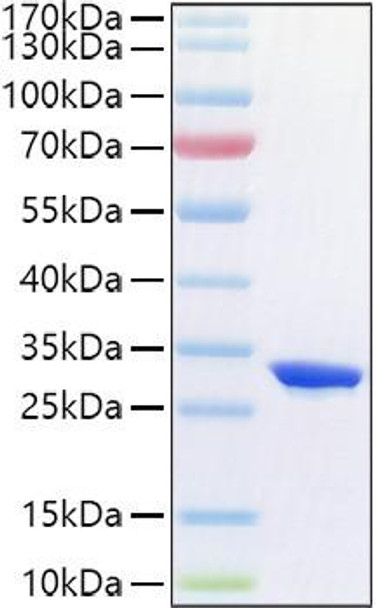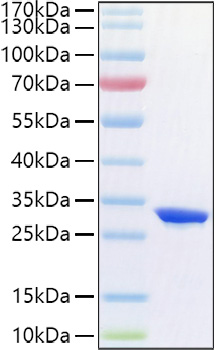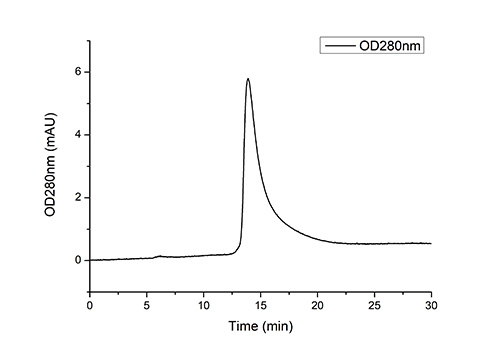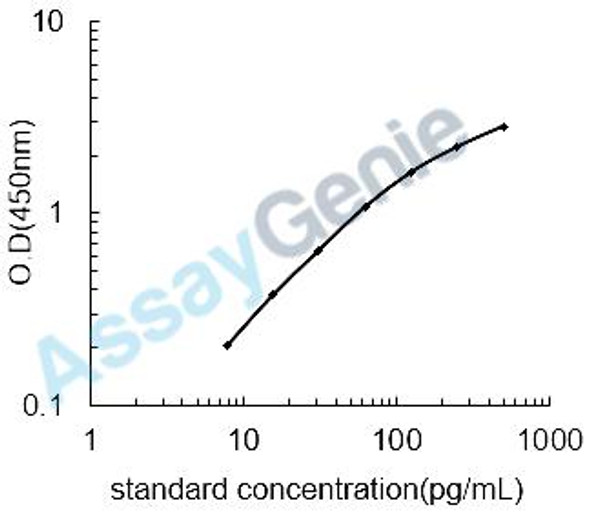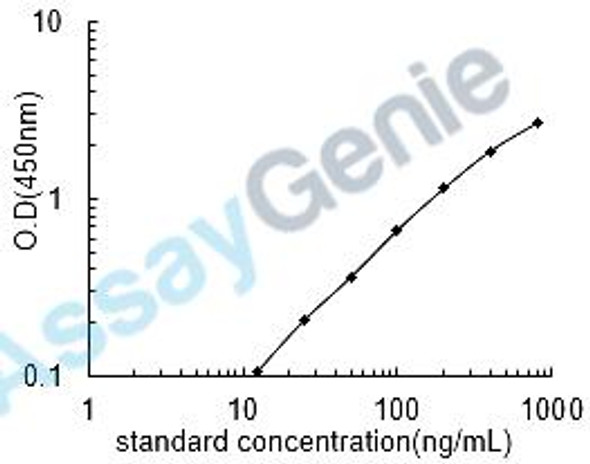Description
Recombinant Human Complement factor D/CFD Protein
The Recombinant Human Complement factor D/CFD Protein is a biologically active recombinant protein that plays a significant role in various cellular processes and signaling pathways in human biology. This protein is widely employed in immunological research, cell biology studies, protein-protein interaction analyses, and therapeutic development, providing researchers with a reliable tool for investigating Complement factor D/CFD function and its implications in health and disease.
This product (SKU: RPCB1380) is produced using HEK293 cells and features a C-His tag for convenient detection and purification. The protein exhibits a calculated molecular weight of 25.24 kDa with an observed molecular weight of 30-35 kDa under denaturing conditions, achieving ≥ 95 % as determined by SDS-PAGE;≥95 % as determined by HPLC.. Functional bioactivity has been validated through rigorous quality control assays, confirming its suitability for demanding research applications.
Key Features
| High Purity by Affinity Chromatography | |
| Mammalian & Bacterial Expression Systems | |
| High lot-to-lot consistency via strict QC |
| Product Name: | Recombinant Human Complement factor D/CFD Protein |
| SKU: | RPCB1380 |
| Size: | 10 μg , 20 μg , 50 μg , 100 μg |
| Reactivity: | Human |
| Synonyms: | CFD, ADIPSIN, ADN, DF, PFD |
| Tag: | C-His |
| Expression Host: | HEK293 cells |
| Calculated MW: | 25.24 kDa |
| Observed MW: | 30-35 kDa |
| Gene ID: | 1675 |
| Protein Description: | High quality, high purity and low endotoxin recombinant Recombinant Human Complement factor D/CFD Protein (RPCB1380), tested reactivity in HEK293 cells and has been validated in SDS-PAGE.100% guaranteed. |
| Endotoxin: | < 0.1 EU/μg of the protein by LAL method. |
| Purity: | ≥ 95 % as determined by SDS-PAGE;≥95 % as determined by HPLC. |
| Formulation: | Lyophilized from a 0.22 μm filtered solution of PBS, pH 7.4. |
| Bio-Activity: | Measured by its ability to cleave a colorimetric peptide substrate, N-carbobenzyloxy-Lys-ThioBenzyl ester (Z-Lys-SBzl), in the presence of 5,5’Dithio-bis (2-nitrobenzoic acid) (DTNB). The specific activity is >452.49 pmol/min/μg. |
| Reconstitution: | Centrifuge the vial before opening. Reconstitute to a concentration of 0.1-0.5 mg/mL in sterile distilled water. Avoid vortex or vigorously pipetting the protein. For long term storage, it is recommended to add a carrier protein or stablizer (e.g. 0.1% BSA, 5% HSA, 10% FBS or 5% Trehalose), and aliquot the reconstituted protein solution to minimize free-thaw cycles. |
| Storage: | Store at -20℃.Store the lyophilized protein at -20℃ to -80 ℃ up to 1 year from the date of receipt. After reconstitution, the protein solution is stable at -20℃ for 3 months, at 2-8℃ for up to 1 week. |
Complement factor D, also known as Adipsin, C3 convertase activator, Properdin factor D and CFD is a secreted protein which belongs to thepeptidase S1 family. CFD/Adipsin contains onepeptidase S1 domain. Complement factor D ( CFD/Adipsin ) is a component of the alternative complement pathway best known for its role in humoral suppression of infectious agents. Complement factor D ( CFD/Adipsin ) has a high level of expression in fat, suggesting a role for adipose tissue in immune system biology. This protein is also a serine protease that is secreted by adipocytes into the bloodstream. Complement factor D ( CFD/Adipsin ) cleaves factor B when the latter is complexed with factor C3b, activating the C3bbb complex, which then becomes the C3 convertase of the alternate pathway. Its function is homologous to that of C1s in the classical pathway. Complement factor D ( CFD/Adipsin ) is a serine protease that stimulates glucose transport for triglyceride accumulation in fats cells and inhibits lipolysis. Defects in CFD/Adipsin are the cause of complement factor D deficiency (CFD deficiency) which predisposes to invasive meningococcal disease.

